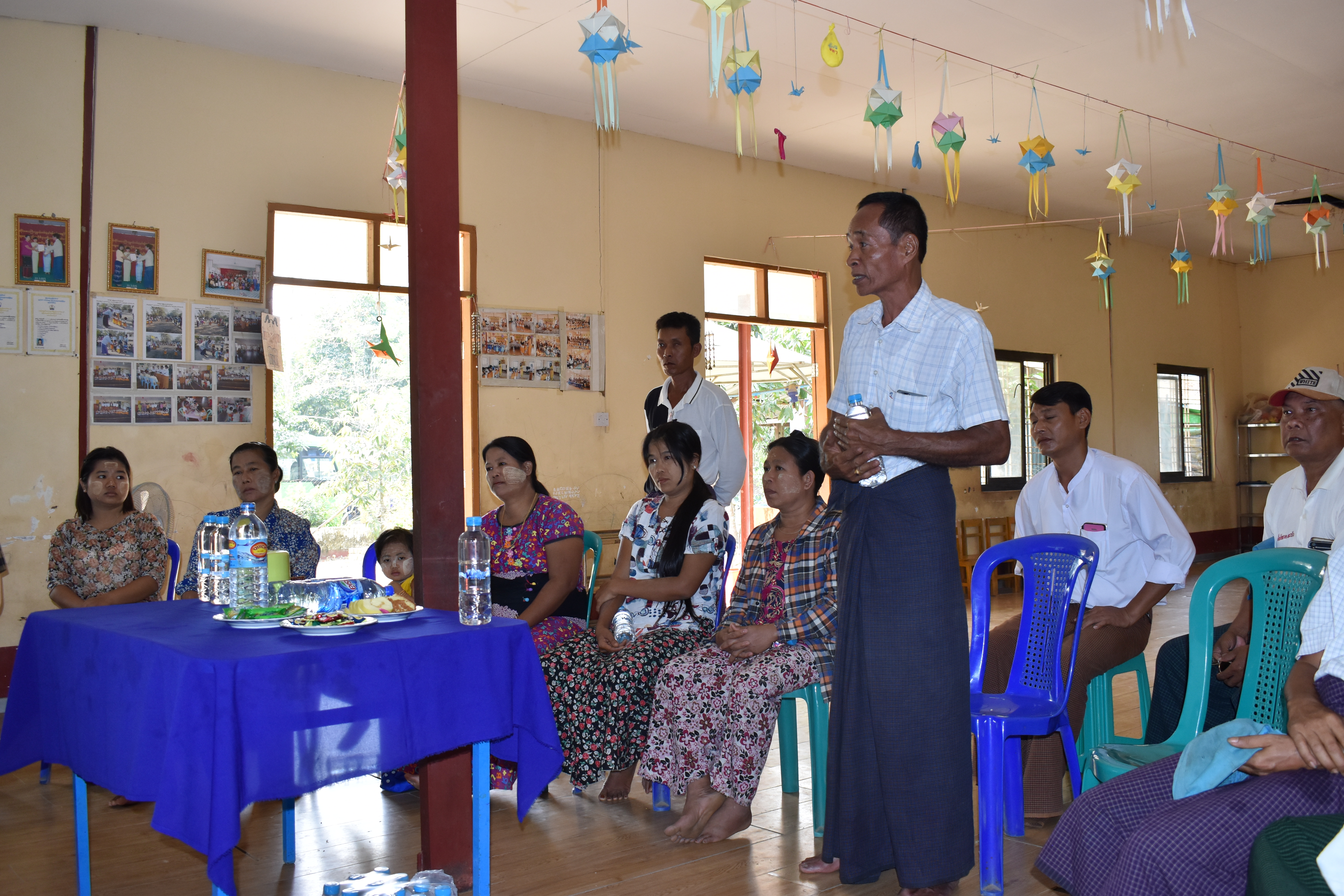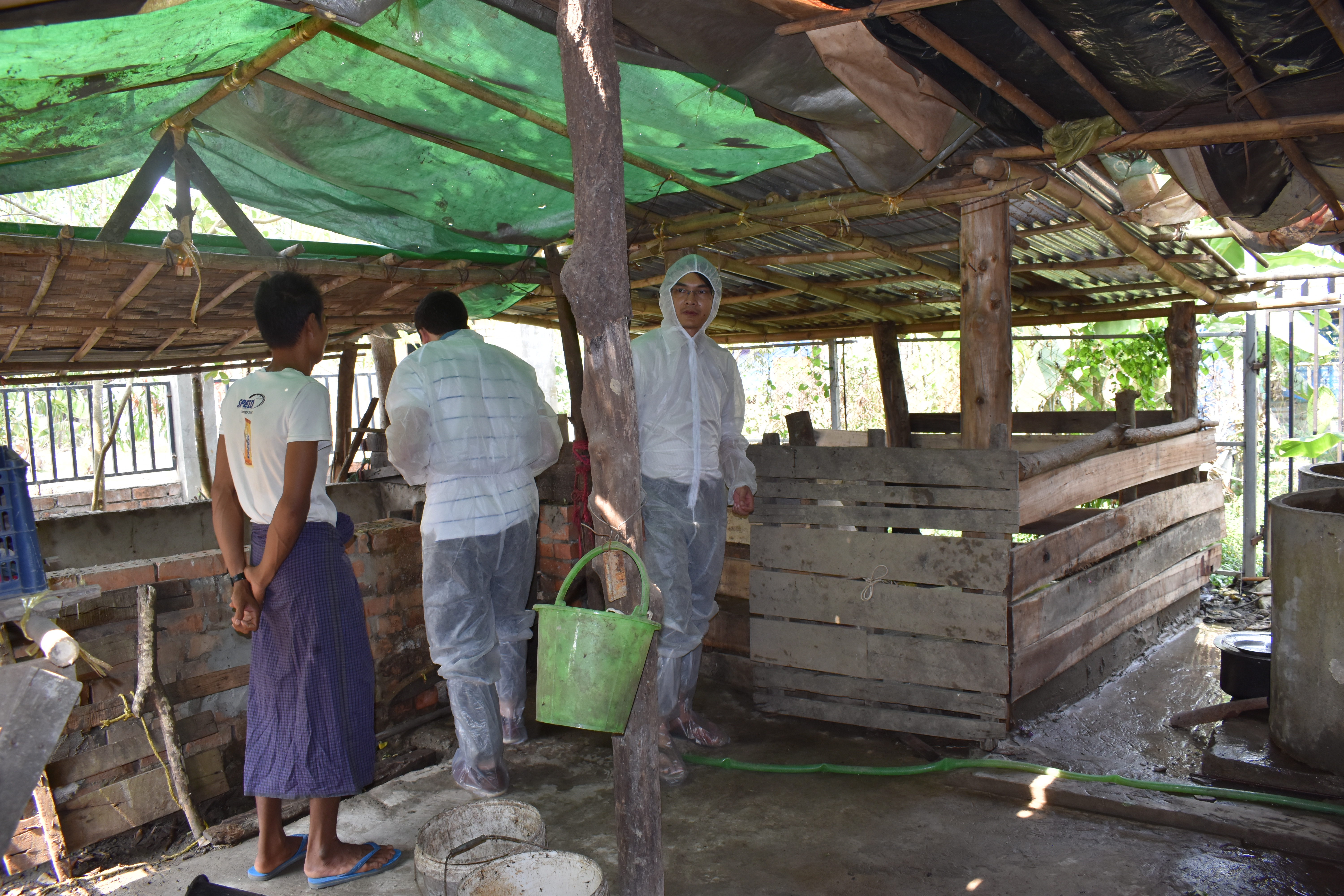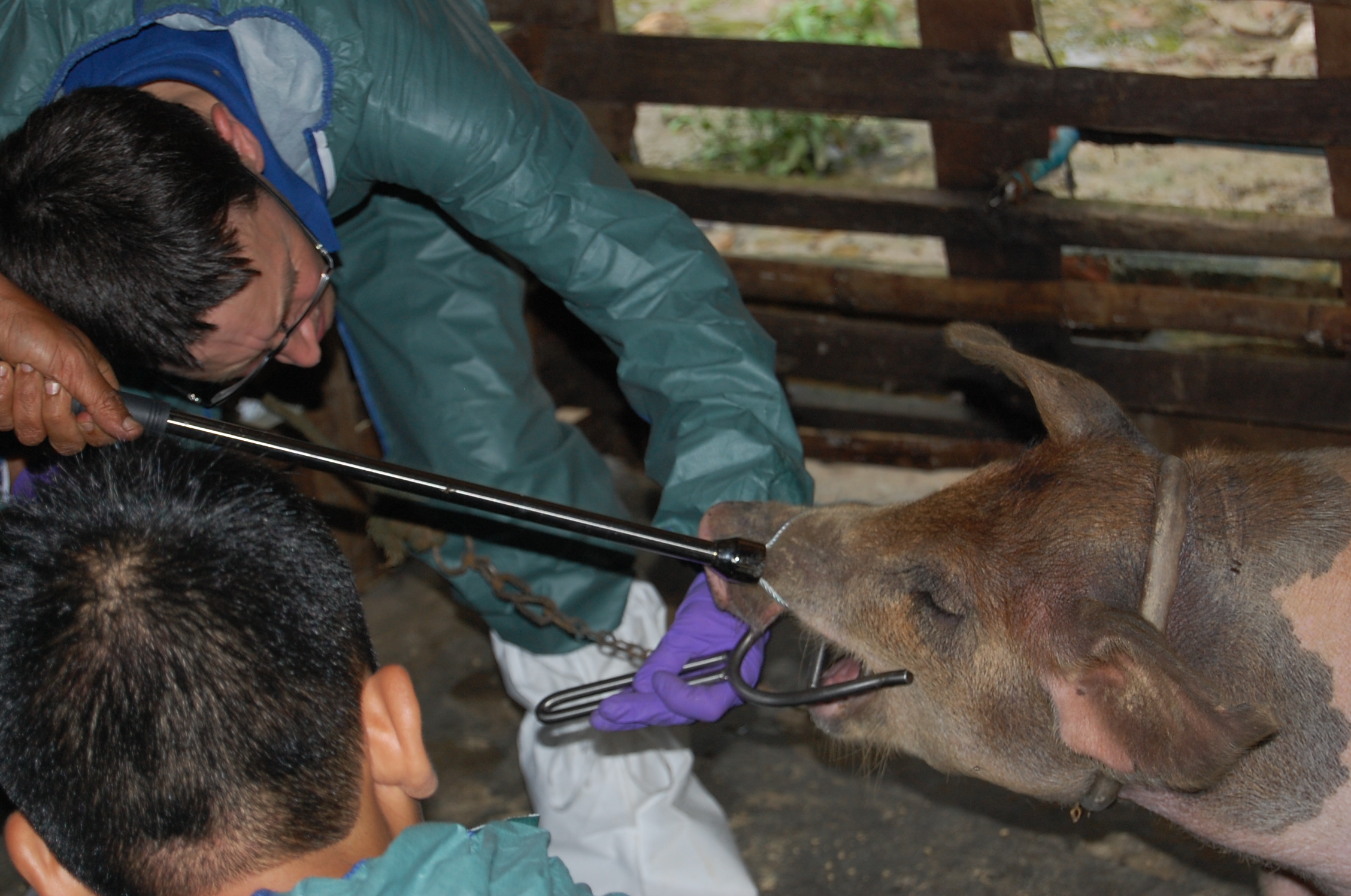



Myanmar Pig Partnership prepares producers for disease outbreaks
The multidisciplinary Myanmar Pig Partnership has spent the last three years researching swine disease epidemiology and developing biosecurity training and tools for pig farmers.Disease outbreaks can have catastrophic impacts on livestock and human health and welfare, and on the livelihood of farmers. This is why a One Health approach to disease control is crucial to the prevention of disease, including epidemics, such as the ongoing battle against African swine fever in China and Vietnam.
The Myanmar Pig Partnership (MPP) is one research group that is effecting this, using a number of approaches including in-field Farm Management Workshops and a Veterinary Advisory Visits scheme.

ZELS
The MPP, established in 2016, is funded under the Zoonoses in Emerging Livestock System (ZELS) initiative. The partnership is currently in its third year of a five-year scheme led by the University of Cambridge and is making progress in its aim to develop an integrated and management-based approach for surveillance and control of zoonoses in Myanmar’s rapidly growing and intensifying pig sector.
Human populations repeatedly face new infectious disease challenges, many of which are of animal origin (zoonotic) and have become endemic in animal and human populations. These zoonotic risks may be worsened by rapid development and diversification of livestock production systems now occurring in low- and middle-income countries, especially in South East Asia. These emerging livestock systems (ELS) are linked to peoples' changing food consumption habits, economic status, aspirations and population shifts, and to political contexts. Key features of these ELS include intensification of animal keeping, increased use of antibiotics, and extended supply chains – all of which can have disadvantages from a food safety perspective.
Headlines regularly focus on the emerging zoonotic diseases, for example highly pathogenic influenza (HPAI), but it is the forgotten endemic zoonotic diseases, and primarily gastrointestinal (GI) infections that place the heaviest global burden on the livelihoods of the poorest sectors of society by impacting their health and the productivity and profitability of their livestock.
The MPP has so far identified opportunities for interventions to improve animal health, farm productivity, rational use of antibiotics and awareness of occupational and food-borne zoonotic risks, and it has now been awarded extra funding to undertake a supplementary project.
This will see MPP researchers investigating the impact of diarrhoea in people cause by direct and indirect contact with pigs and pig products. The project will pilot a human diarrhoea surveillance scheme to identify the most prevalent diarrhoea-causing pathogens and from this, research outputs will be converted into valuable communication tools that will influence policy, on-farm practice and veterinary expertise.

Farm Management Workshops
The MPP commenced its Farm Management Workshop (FMW) scheme in June this year (2019). Pigs in Myanmar are central to village life according to Dan Tucker, MPP project leader, with locals abiding by the Burmese proverb: အကြွေးထူ ဝက်မွေး (“in times of debt, raise a pig”).
Tucker says that humans live closely with their swine companions upon which they rely for both low-cost food and food waste recycling, which means that transmission of pathogens between pigs and humans is common. This is where the FMW scheme will play a huge part in preventing damaging zoonotic disease transmission.
Drawing on the pedagogical approach of the Farmer Field Schools, the FMW has been adapted to semi-intensive pig production.
“We build on what farmers understand and practice with group-based discussion facilitated by a trained government veterinarian, observation and simple experimentation,” says the MPP project leader.
“Critical concepts like zoonotic transmission are introduced in as concrete and immediate a manner as possible. The first FMW sessions have focused on sow and piglet nutrition and physiology and biosecurity.
“Some farmers in the township are already practicing collective biosecurity - for example forbidding the movement of sick pigs within the village and obliging traders and their trucks to stay outside to limit disease risks. We've invited them to come and discuss what they're doing with the FMW participants.
“When the FMW are better established, we plan to bring in film makers who will document, in farmers' words, what they have learned and what they are doing differently. The films will be made accessible to other farmers across Myanmar via television and social media. We expect that Myanmar’s Livestock Breeding and Veterinary Department (LBVD) and NGOs working with farmers will be able to use them for their staff's own learning and to help encourage other farmers to follow the model.”
Veterinary Advisory Visits
In order to provide targeted preventive veterinary health advice, including information about farm biosecurity, and maximising sow and piglet productivity directly to farmers, the MPP is also running a pilot scheme of Veterinary Advisory Visits in participating townships. These visits are complementary to the FMWs but take a more traditional approach in providing specialist advice from LBVD veterinary officers in turn supported by a ‘toolkit’ of training and resources from MPP.

With African swine fever (ASF) as an expected and unwelcome pathogen from China, these initiatives are timely. At national level, Myanmar will face particular challenges in detecting and controlling ASF against a backdrop of a relatively high existing burden of endemic diseases. At farmer level, the impacts have potential to be catastrophic to the livelihoods for backyard, mid-scale, and intensive producers alike. An awareness-building workshop on ASF detection, diagnosis and management, organised by MPP and LBVD with collaboration from FAO in September 2018, just one month after the emergence of ASF in China, attracted attendance from more than 100 government veterinarians from across Myanmar.
MPP is now planning to leave a lasting contribution to Myanmar’s emerging pig industry by convening a national conference to bring together the country’s pig veterinarians for the first time, in conjunction with Myanmar Veterinary Association, LBVD and the University of Veterinary Science at Yezin.
If you would like to know more about the Myanmar Pig Partnership and its associated projects, please visit the partnership website.









